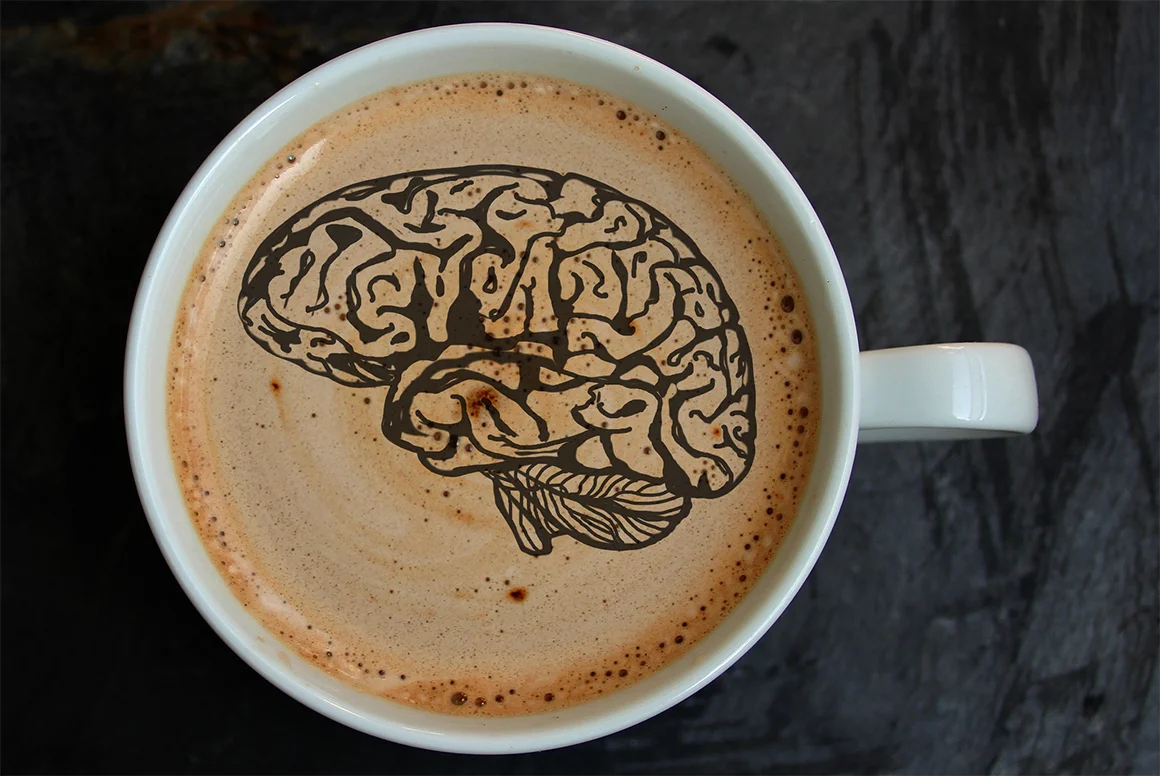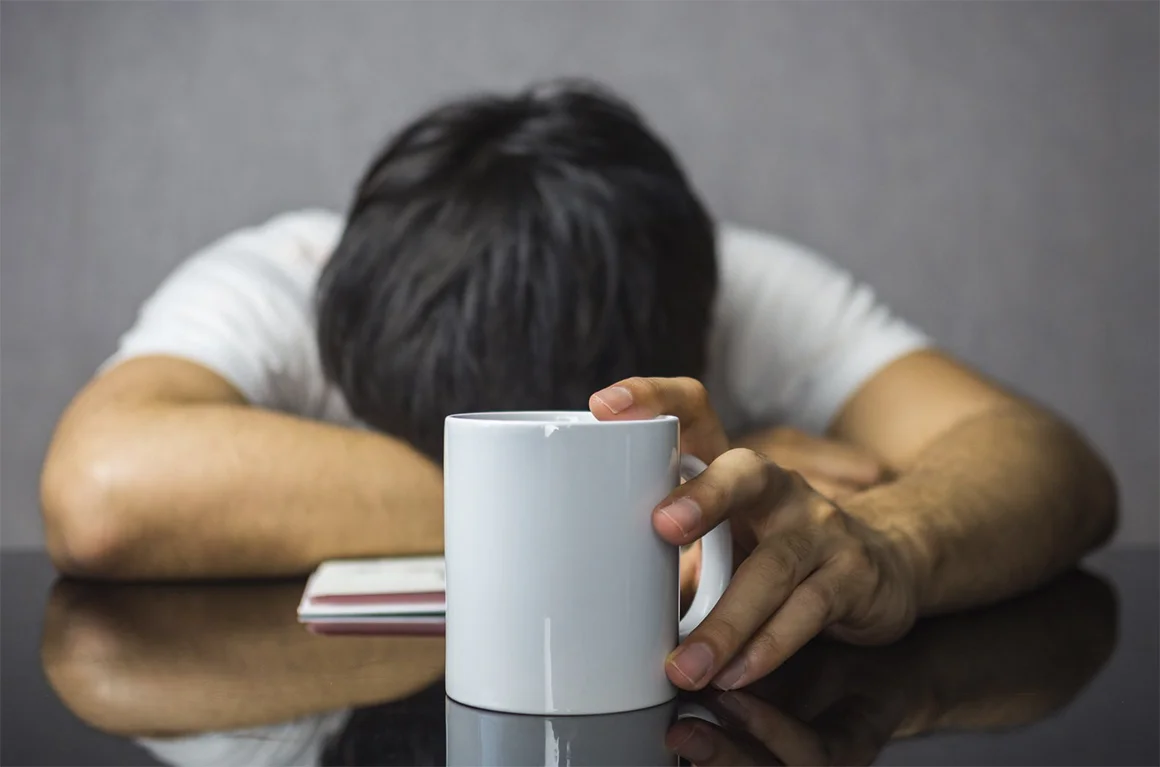Caffeine addiction is a serious problem that is becoming increasingly relevant in modern society. According to the World Health Organization, more than 90% of the world’s adults consume caffeine in some form, and 10% consume it in excessive amounts. In addition, caffeine addiction often develops in children and adolescents, which can affect their physical and psychological health.
Caffeine addiction has negative health effects, including the risk of developing cardiovascular and nervous system diseases, as well as decreased work efficiency and memory impairment. In addition, excessive caffeine consumption can lead to the development of caffeine tolerance, where the body requires more caffeine to feel its stimulating effects.
Because caffeine addiction is such a common problem, it is important to recognize its consequences, prevent it, and treat it. In particular, information should be disseminated about the possible consequences of excessive caffeine consumption and ways to reduce the risks of developing caffeine addiction.
According to research, especially high risks of developing caffeine addiction occur under conditions of stress, overwork, lack of sleep and other negative effects on the human body. Therefore, to stay healthy, it is important to maintain a work-life balance, maintain a healthy lifestyle, and limit your caffeine intake. It is also important to recognize the problem and prevent its development.

The effect of caffeine on the nervous and cardiovascular system
Caffeine is the most common stimulant in the world, found in coffee, tea, cola and other drinks. Its effect on the nervous and cardiovascular systems is one of the main reasons people become interested in it, but it can also be a source of problems.
Caffeine acts on the nervous system by blocking adenosine receptors, which cause brain function to slow down. This helps to increase his activity, improve his mood and improve his work efficiency. However, excessive caffeine consumption can cause side effects such as anxiety, nervousness, and insomnia.
Regarding the cardiovascular system, caffeine can cause an increase in blood pressure and heart rate, which in the long term often leads to the development of heart and vascular diseases. Excessive consumption of caffeine can cause cardiac arrhythmia and poor circulation in the body.
In addition, caffeine can affect the gastrointestinal tract, increasing the production of gastric juice and reducing intestinal motor activity. This can lead to the development of gastritis and stomach ulcers.
Given the effect of caffeine on the nervous and cardiovascular systems, it is recommended to use it in limited quantities. Typically, a safe dose of caffeine for an adult is up to 400 mg per day, which is equivalent to 4-5 cups of coffee. For children and teenagers, it is recommended to consume less caffeine.
If a person has pre-existing cardiovascular disease, it is recommended to limit caffeine intake and consult a doctor about a safe dose. It is also important to avoid drinking drinks that contain large amounts of sugar and other harmful substances.
For those who are addicted to caffeine, an option is to reduce the amount of caffeine they consume gradually to avoid the side effects of abrupt withdrawal. You can also try replacing coffee and other caffeinated drinks with decaf alternatives such as herbal tea or lemon water.
The effects of caffeine on the nervous and cardiovascular systems are complex and can have both positive and negative effects. But to maintain health, it is recommended to monitor the amount of its consumption.

Effects of caffeine on brain function and mental state
Caffeine can increase blood flow to the brain, increase nervous system activity, and lift your mood. However, its excessive consumption can have negative consequences on a person’s mental and physical health.
Caffeine affects brain function by blocking adenosine receptors, which leads to increased production of dopamine and other neurotransmitters that affect mood and mental state. This helps increase energy and productivity at work, and reduces feelings of sleepiness and uncertainty.
However, the effect of caffeine on a person’s mental state also has negative consequences. Excessive caffeine consumption can lead to increased levels of anxiety and irritability, as well as contribute to the development of insomnia and sleep disorders. And this will certainly have a negative impact on a person’s life and work if anxiety begins to dominate over concentration and productivity.
Also, excessive caffeine consumption has a definite effect on mood and understanding of emotions. It is known that caffeine can reduce the recognition of positive and negative emotions, which affects interpersonal relationships and interactions with others.
Therefore, although caffeine may have positive effects on brain function and mental state, its negative effects should not be ignored. This is especially true for people with certain medical conditions that are sensitive to the effects of caffeine, such as people with anxiety disorders and sleep disorders.
Additionally, it is important to note that the effects of caffeine on brain function and mental state may vary from person to person. For example, some people are more sensitive and experience negative effects from even small amounts of caffeine consumed, while others can consume much more caffeine without negative effects.
It’s also important to note that caffeine addiction can manifest itself as side effects from caffeine withdrawal, such as headaches, drowsiness, and gastrointestinal distress.

Physical symptoms of caffeine addiction
Physical symptoms of caffeine addiction can be detected in people who regularly consume caffeine. These symptoms can appear in different forms and affect different systems of the body. Here are some of them:
- Headache: one of the most common symptoms of caffeine addiction is headache, which can be caused by caffeine withdrawal. This is due to changes in blood circulation and the effect of caffeine on the blood vessels of the brain.
- Drowsiness and fatigue: excessive caffeine consumption may reduce the effectiveness of caffeine and increase drowsiness and fatigue. This is due to changes in the levels of chemicals in the brain responsible for regulating mood and energy.
- Hand tremor: excessive caffeine consumption can lead to hand tremors, which is due to changes in the levels of neurotransmitters in the brain responsible for controlling movement.
- Sweating: caffeine can increase sweating and cause you to sweat more. This is due to changes in blood circulation and thermoregulation of the body.
- Sleep disturbance: excessive caffeine consumption can lead to sleep disturbances and insomnia due to changes in the levels of hormones and chemicals in the brain responsible for regulating sleep and wakefulness.
- Digestive disorders: excessive caffeine consumption can lead to digestive disorders such as constipation and diarrhea, which is due to changes in the levels of hormones and chemicals in the brain responsible for regulating the digestive system.
- Increased blood pressure: caffeine may increase blood pressure due to changes in the levels of substances in the brain responsible for regulating blood circulation.
- Increased heart rate: caffeine can increase heart rate and pulse, which is associated with changes in the levels of neurotransmitters in the brain responsible for regulating the cardiovascular system.
- Irritability and anxiety: excessive caffeine consumption can lead to increased levels of anxiety and irritability, which is associated with changes in the levels of neurotransmitters in the brain that are responsible for regulating mood and emotional state.
- Cognitive decline: excessive caffeine consumption can lead to decline in cognitive functions such as attention, concentration, and memory. This is due to changes in the levels of chemicals in the brain responsible for regulating these functions.
Therefore, the physical symptoms of caffeine addiction can come in different forms and affect different body systems.

Psychological symptoms of caffeine addiction
In addition to physical symptoms, caffeine addiction can also have psychological symptoms. Here are some of them:
- A strong desire to drink coffee: people with caffeine addiction may feel a strong desire to drink coffee to feel energized and boost their mood.
- Irritability and nervousness: coffee consumption can lead to increased levels of nervousness and irritability in people suffering from caffeine addiction. They may become more prone to outbursts of anger and anxiety.
- Anxiety and depression: excessive coffee consumption can affect a person’s mental state, leading to anxiety and depression. This affects their mood and behavior.
- Sleep problems: people with caffeine addiction may have trouble sleeping. Excessive coffee consumption delays falling asleep and leads to insomnia.
- Concentration problems: excessive coffee consumption often affects people’s ability to concentrate. They may have trouble focusing on work or school.
- Loss of interest in activities: in some cases, excessive coffee consumption can lead to loss of interest in activities. People become less productive and motivated.
- Feeling of guilt: those who suffer from caffeine addiction may feel guilty about their addiction. Realizing that they are unable to control their coffee consumption can undermine their self-esteem.
- Loss of appetite: in some cases, excessive coffee consumption can lead to loss of appetite. This has a negative impact on human health and well-being.
- Feeling of confusion: in some cases, caffeine addiction can lead to feelings of confusion. People feel tired and weak-willed.
- Problems with making decisions: excessive coffee consumption can affect decision-making ability. Coffee addicts become less determined and less able to focus on tasks.
Consequently, psychological symptoms of caffeine addiction may include irritability, nervousness, anxiety, depression, difficulty sleeping, concentration, and guilt. These symptoms negatively affect a person’s mental state and well-being, so it is important to be aware of them and seek help from a psychologist if the need arises.

Caffeine addiction in pregnant and lactating women
Pregnancy and breastfeeding are periods when you need to take special care of your health and the health of your child. Caffeine consumption is especially dangerous during this time. It can cross the placenta to the fetus and enter the mother’s milk, which can lead to negative consequences for the child’s health.
Pregnant and breastfeeding women who consume more than 200 mg of caffeine per day (equivalent to two cups of coffee) may be more susceptible to certain health risks for their children, according to research in recent years.
Also, health risks for the expectant mother and child from caffeine consumption include:
- The risk of premature birth and low birth weight of newborns.
- The risk of having a child with reduced intellectual development and delayed psychomotor development.
- The risk of developmental defects in the fetus.
- The risk of hyperactivity in a child after birth.
- The risk of developing postpartum depression in the mother.
Health organizations recommend that pregnant and breastfeeding women limit their caffeine intake to 200 mg per day. This is equivalent to two cups of coffee. It is also important to remember that caffeine can be found not only in coffee, but also in tea, chocolate, carbonated drinks and other products.
Here are the foods that contain caffeine. They should be consumed in moderation or avoided altogether:
- Coffee – coffee drinks contain higher amounts of caffeine than other drinks.
- Tea – depending on the variety and brewing time, tea may contain varying amounts of caffeine. Black tea contains more caffeine than green or white tea.
- Carbonated drinks – some carbonated drinks contain caffeine, particularly cola and other cola-based drinks.
- Chocolate – dark chocolate contains more caffeine than milk chocolate.
- Energy drinks contain large amounts of caffeine and other stimulants.
Additionally, pregnant and breastfeeding women should monitor their health and seek medical attention if they experience symptoms that may be related to caffeine consumption.
Caffeine addiction can have a negative impact on the health of pregnant and breastfeeding women, as well as the health of the child. Risks include premature birth, low birth weight, fetal malformations, delayed psychomotor development, and slowed intellectual development of the child.
It is also important to remember that each body is individual, so responsibility for caffeine consumption during pregnancy and breastfeeding lies with the woman herself.
Therefore, caffeine addiction can be hazardous to the health of pregnant and breastfeeding women and their children. Risks can be reduced by limiting caffeine intake and being mindful of your health. All pregnant and breastfeeding women should be aware of these risks and consume caffeine-containing products responsibly.
Finally, it is important to pay attention to social support for pregnant and breastfeeding women trying to limit their caffeine intake. This may include understanding from family, friends, colleagues, doctors and other caring people who can help overcome addiction and provide support during the difficult period of pregnancy and breastfeeding.
An information campaign on caffeine addiction in pregnant and breastfeeding women could help increase awareness and provide social support for this group of women. Continued research is needed to gain a more complete picture of the effects of caffeine on the health of pregnant and breastfeeding women and their children. It is also important to provide pregnant and breastfeeding women with access to reliable information about caffeine addiction and health risks.

How to get rid of coffee addiction and reduce caffeine consumption?
There are a number of ways to limit the amount of caffeine you consume. Here are some basic tips:
- Start reducing the amount of coffee you drink. If you usually drink 4 cups of coffee a day, try reducing it to 3 cups a day, then 2 cups a day, and so on. If you drink coffee with added sugar and milk, try drinking it without these ingredients to reduce the amount of calories and sugar in your diet.
- Replace coffee with other drinks. There are caffeine-free alternatives such as decaf tea, herbal infusions, or hot chocolate. These drinks will provide you with energy and a stimulating effect without unnecessary caffeine consumption.
- Switch to coffee with less caffeine. For example, instead of espresso, order filtered or green coffee, which has less caffeine.
- Limit your consumption of caffeine-containing foods, such as soda, black tea, chocolate, and energy drinks. If you consume these products, pay attention to the caffeine content and try to eliminate them from your diet.
- Do exercises that will help you get energy and improve your mood without coffee. This could be exercise, meditation or walking outdoors. These activities will help reduce the risk of caffeine addiction.

Coffee addiction: just the facts
- Physical dependence on coffee can cause feelings of confusion, headaches, drowsiness and other unpleasant symptoms if a person does not get enough caffeine.
- Psychological dependence on coffee can lead to a feeling of obligation to drink coffee to maintain productivity and alertness, even if the person does not need caffeine.
- Coffee can affect mood by increasing dopamine and serotonin levels in the brain. This stimulates the feelings of happiness and pleasure that a person may associate with drinking coffee.
- Coffee addiction can affect sleep, reducing sleep quality and causing difficulty falling asleep. This leads to fatigue and poor physical and mental health.
- People who drink a lot of coffee may experience anxiety, irritability, and nervousness, especially if they don’t get enough caffeine.
- Loss of appetite. Caffeine may suppress your appetite, which may lead to weight loss or poor weight gain.
- Increased blood pressure. Large amounts of caffeine can increase blood pressure, which often leads to cardiovascular disease.
- Changes in mood and emotions. Although a person may experience an increase in mood and energy from drinking coffee, over time, coffee addiction can cause mood changes such as irritability, depression, and anxiety.
- Deterioration of the gastrointestinal tract. Caffeine can cause gastrointestinal problems such as acidity and constipation.
- Feeling out of control. People with caffeine addiction may experience a loss of control over their coffee intake, which often leads to increased caffeine consumption and its negative effects.
- Lack of calcium. Regular consumption of large doses of caffeine can lead to the removal of calcium from the body, which can increase the risk of developing osteoporosis.
- Violation of water balance. Caffeine has a diuretic effect, meaning it can increase the amount of fluid excreted by the kidneys, which often leads to dehydration.
- Changes in blood glucose levels. Caffeine can affect blood glucose levels, which can lead to health problems such as diabetes.
- Effect on the effectiveness of drugs. Caffeine may interfere with the effectiveness of a number of medications, including antidepressants and heart medications.
- Habit. Coffee addiction can become a habit that can be difficult to break, especially if it develops over many years.
- Effect on cardiac activity. Large doses of caffeine can increase your heart rate and blood pressure, which can be dangerous for people with certain heart conditions.
- Stress. Decreasing caffeine intake can lead to withdrawal symptoms such as headache, irritability, fatigue, often causing stress.
- Memory impairment. Long-term coffee consumption can lead to memory decline and cognitive dysfunction.
- Effect on fertility. Large doses of caffeine may have a negative effect on fertility and reproductive performance.
So, while coffee does have some health benefits, overusing caffeine can lead to various health problems. Be a conscious coffee drinker and control the amount of coffee in your diet to prevent the possible consequences of caffeine addiction.




